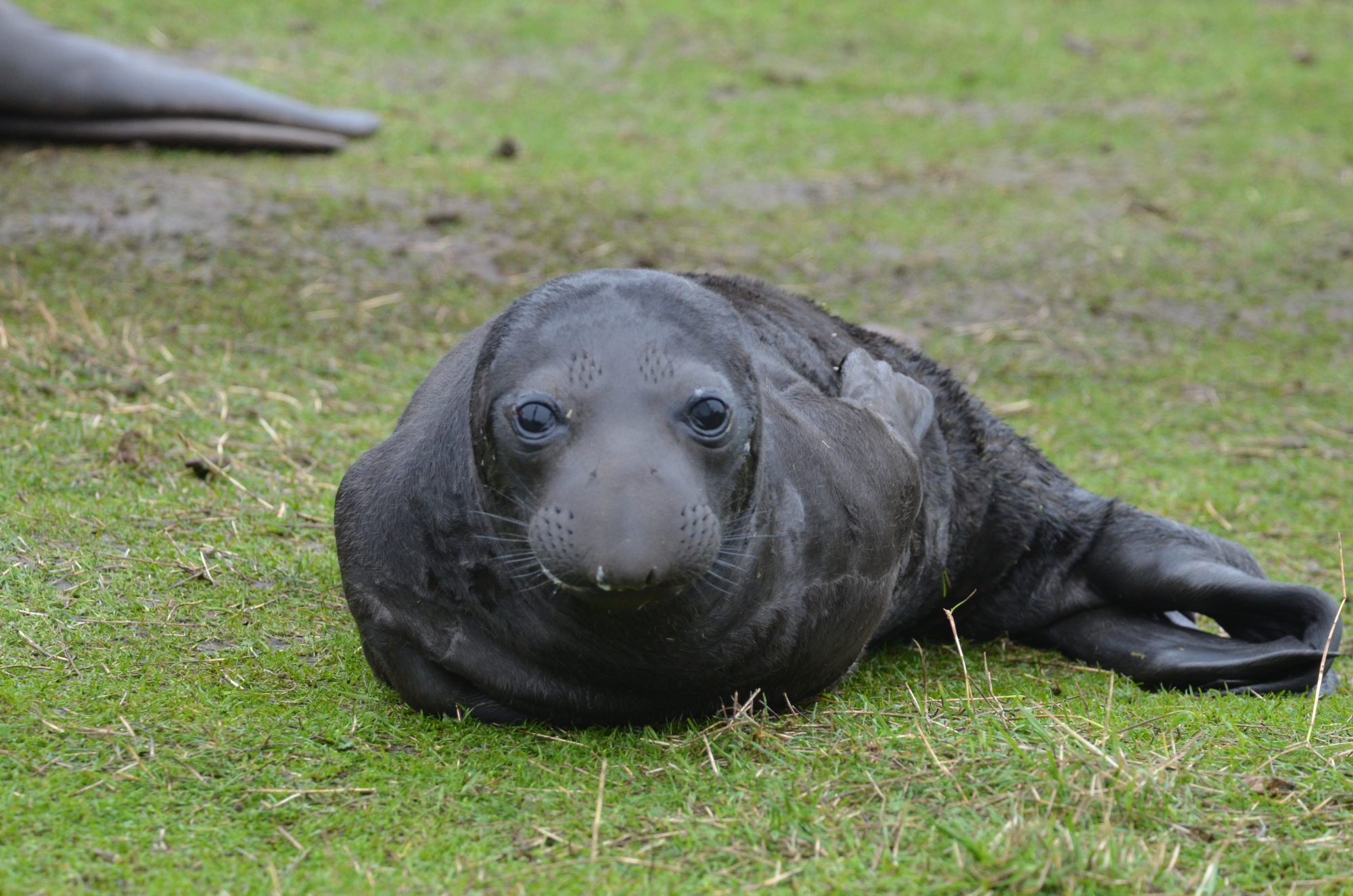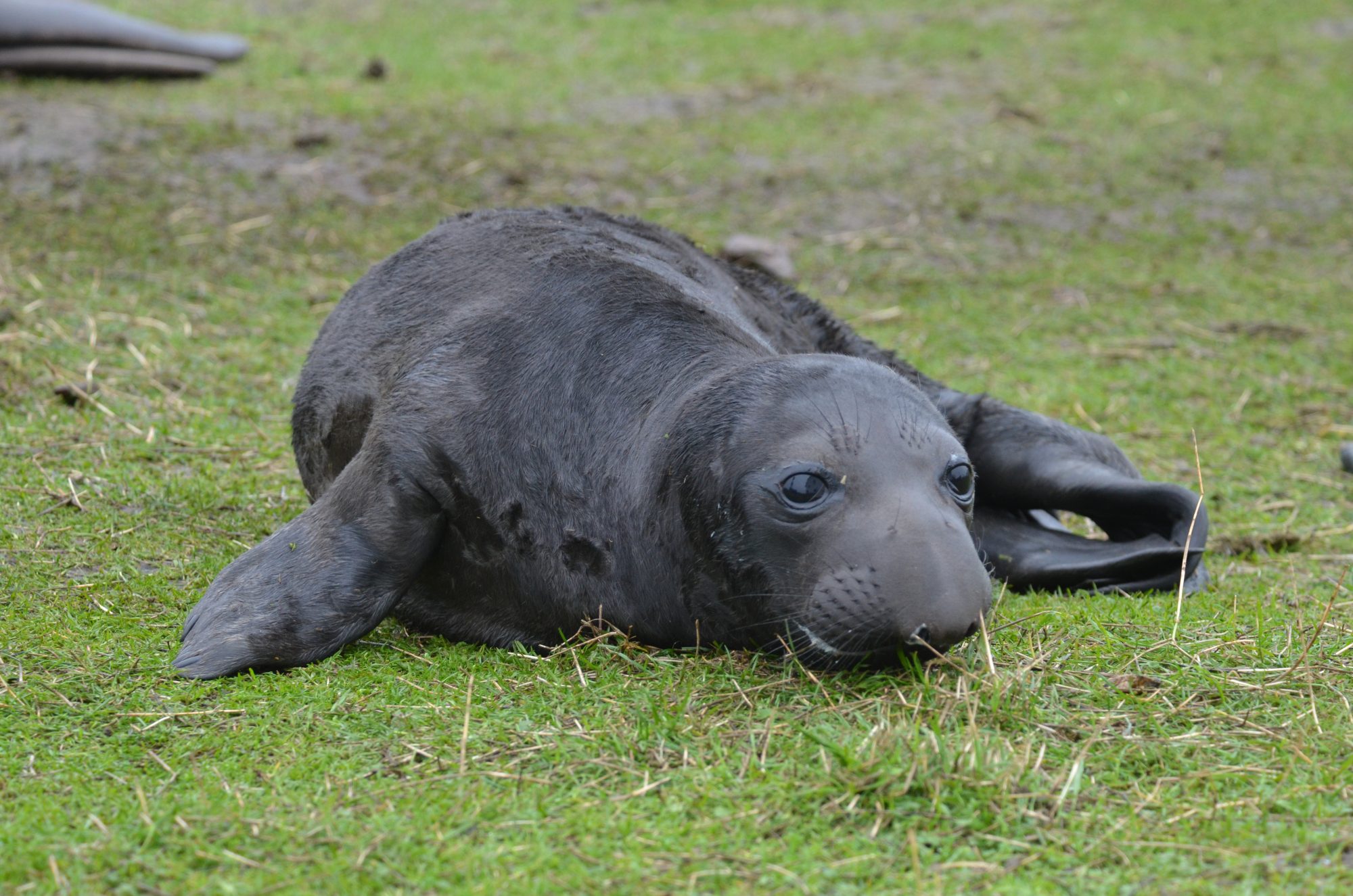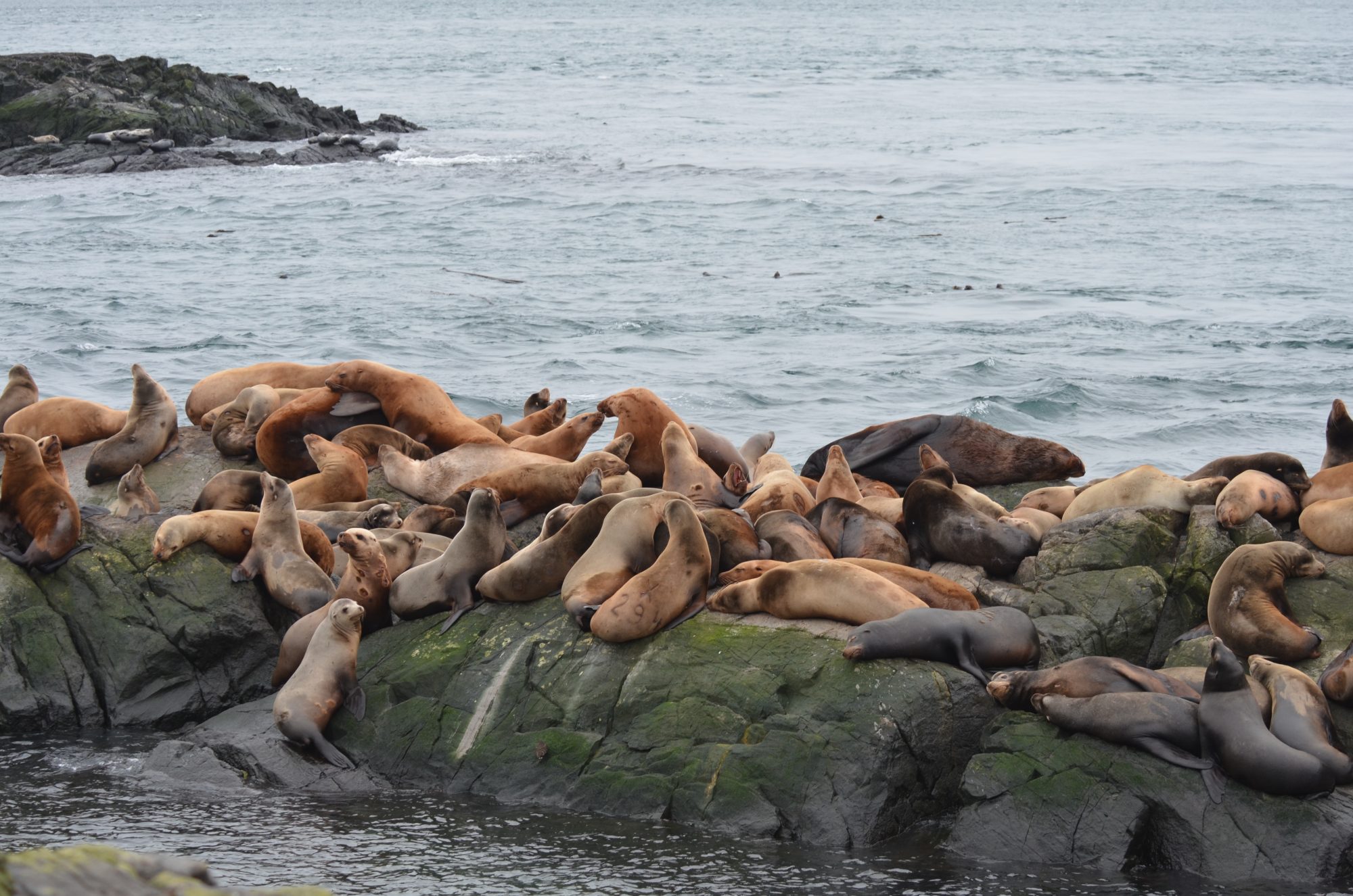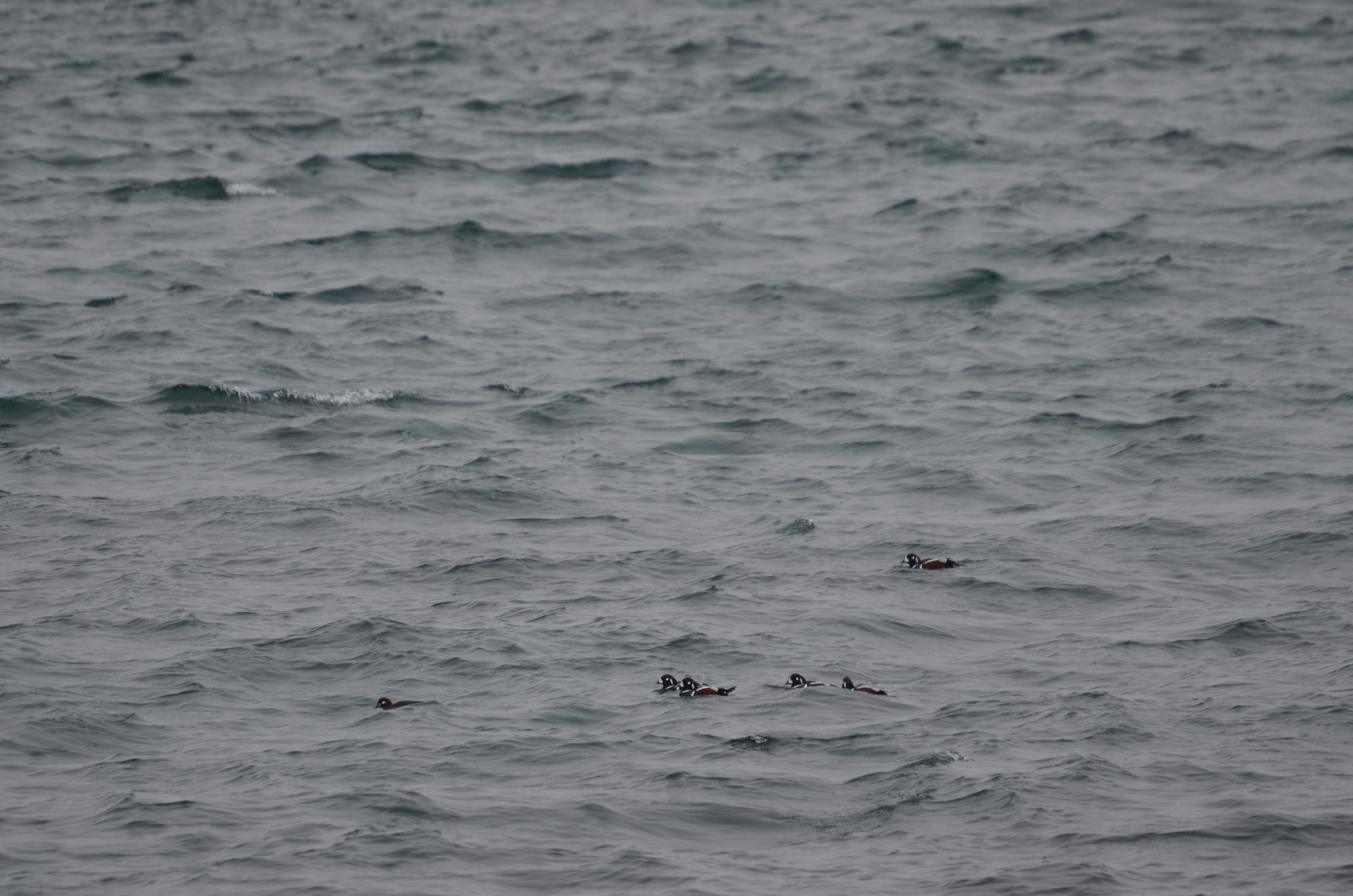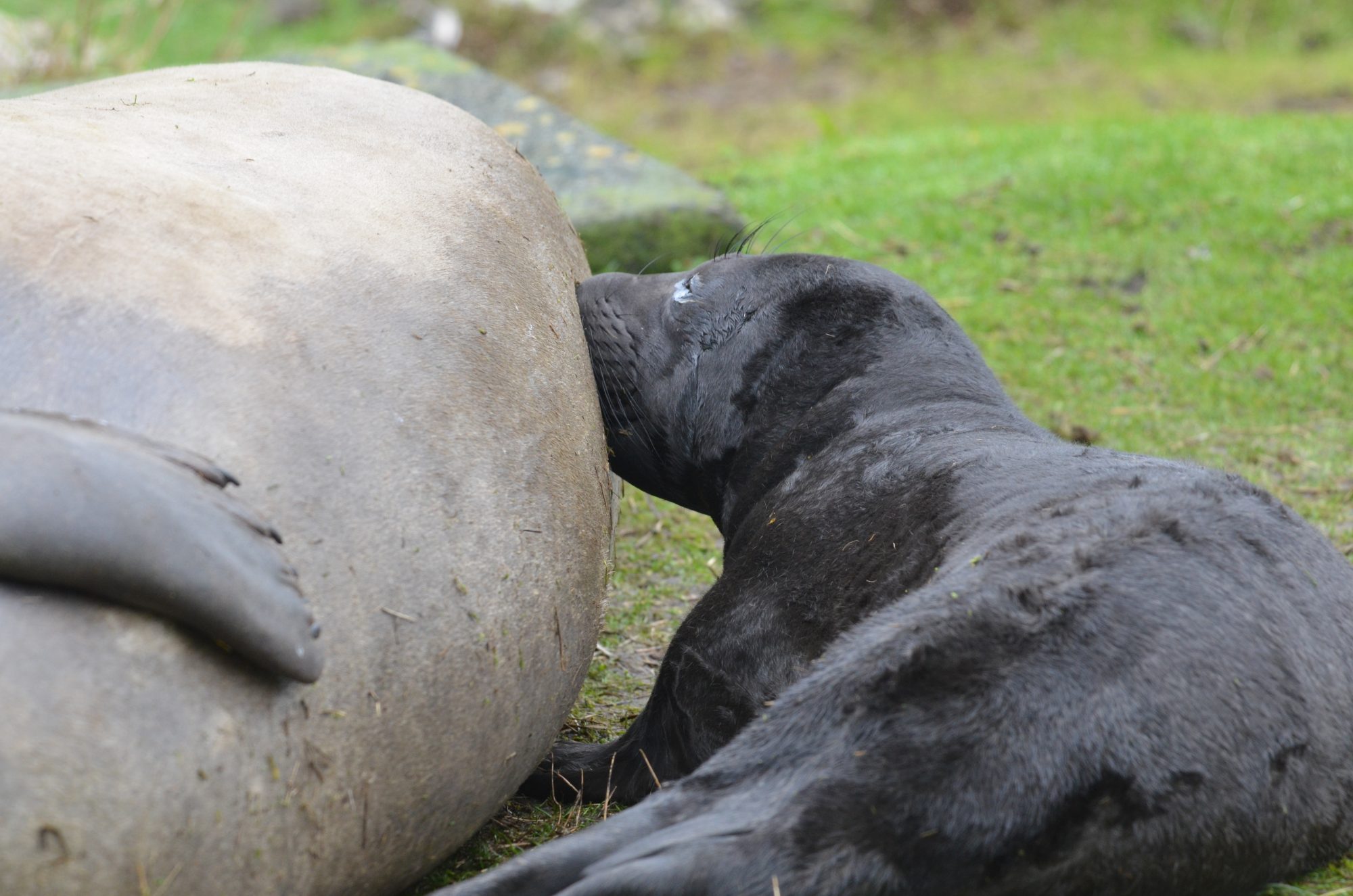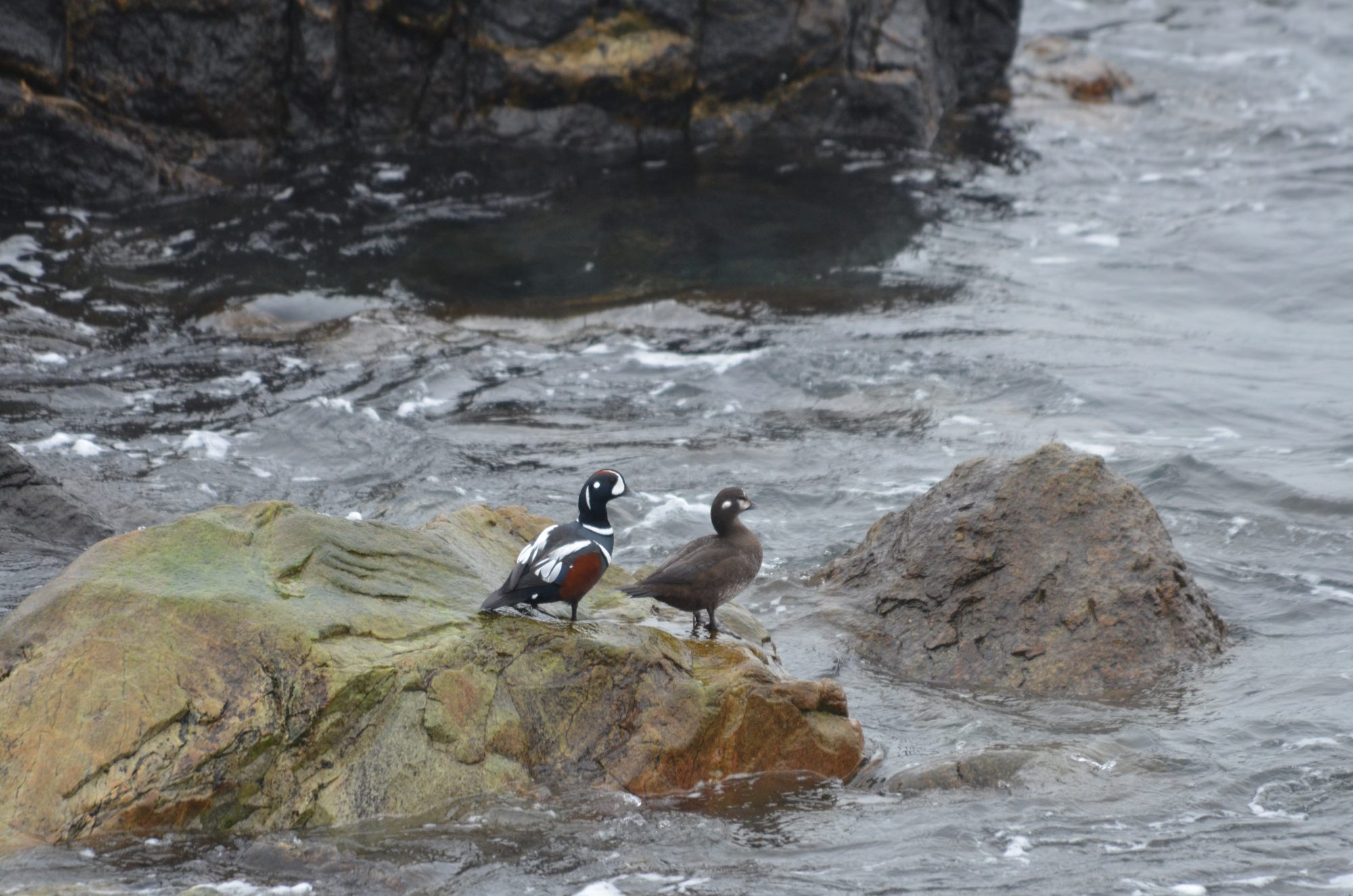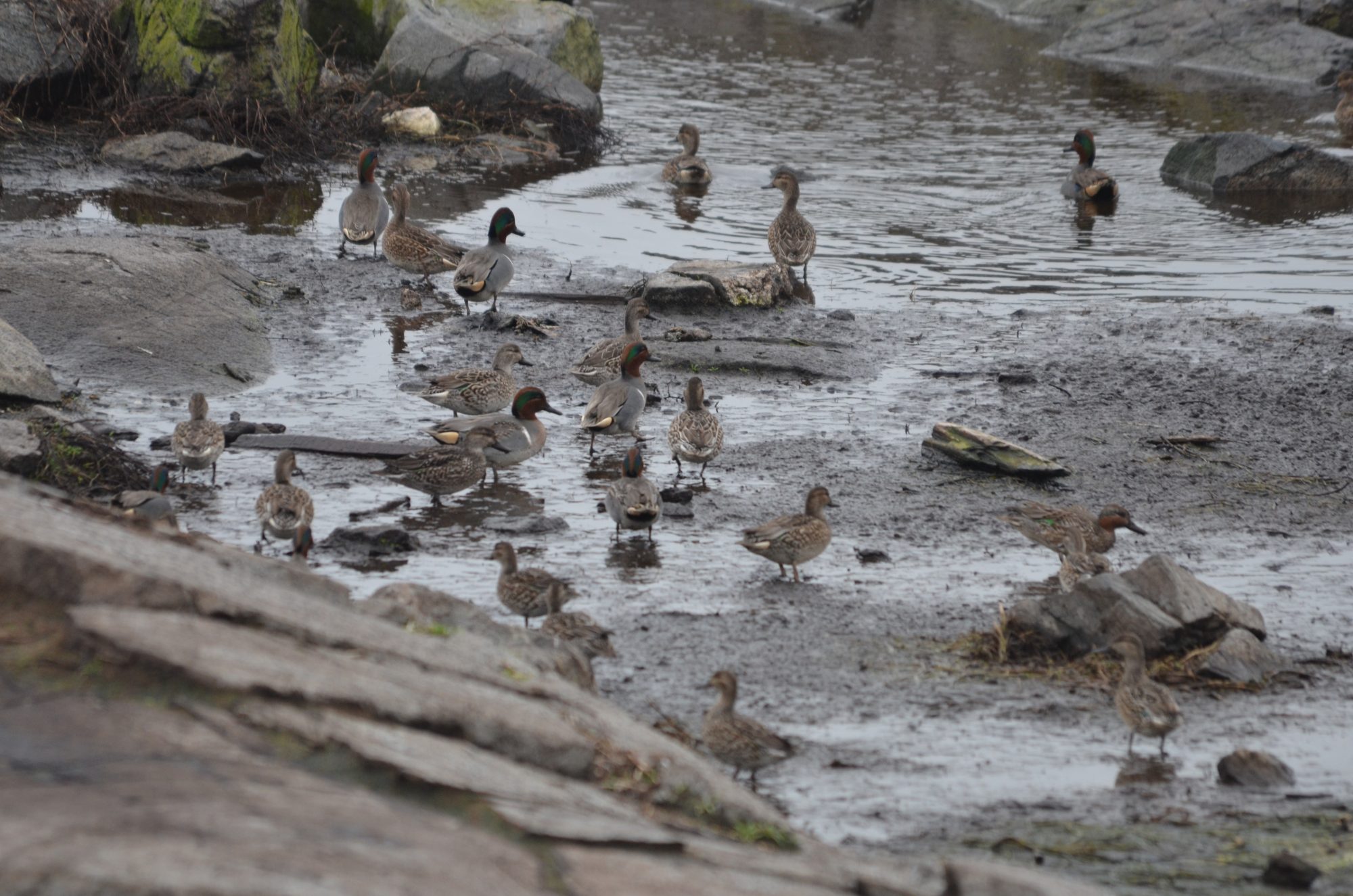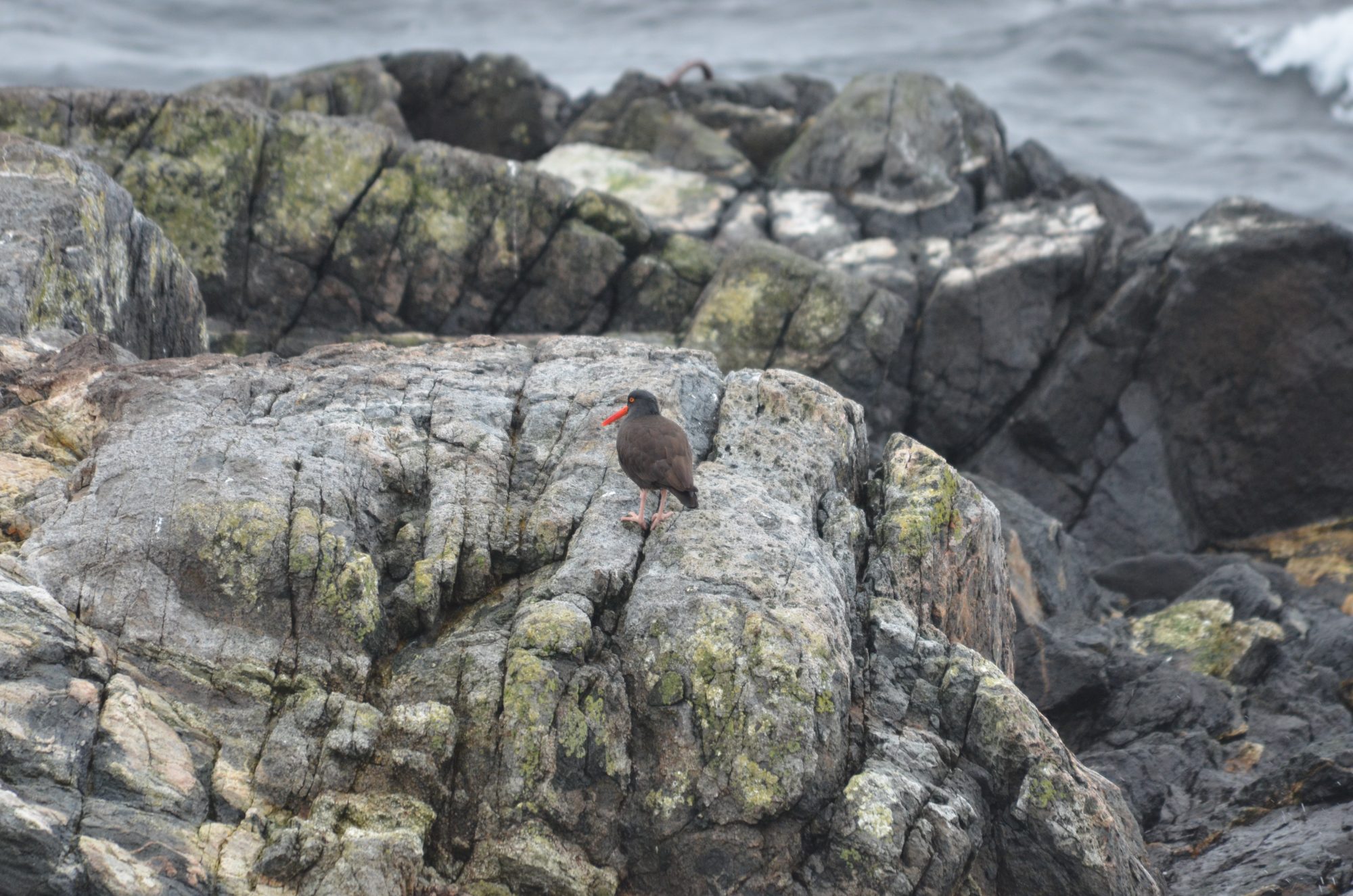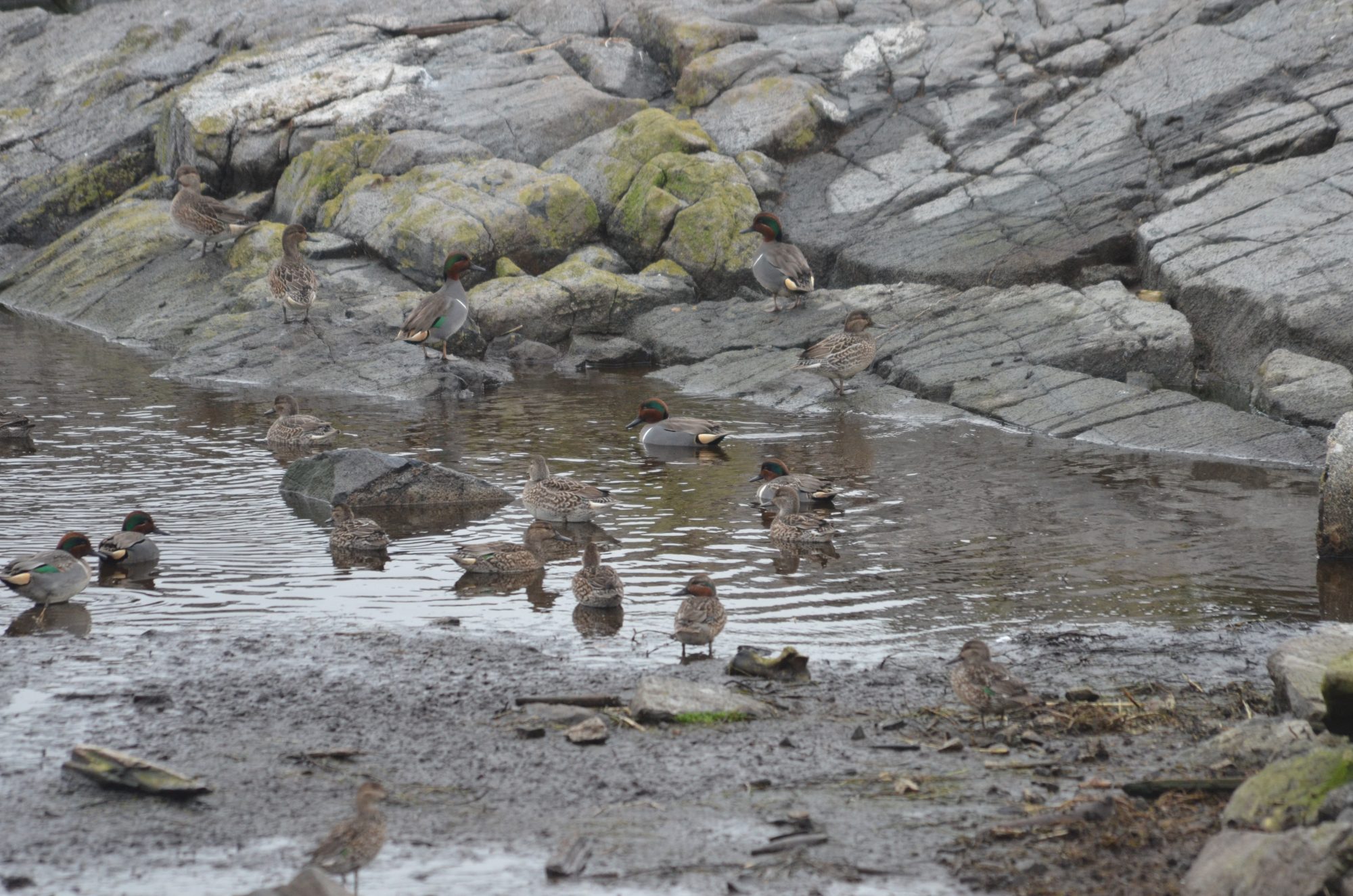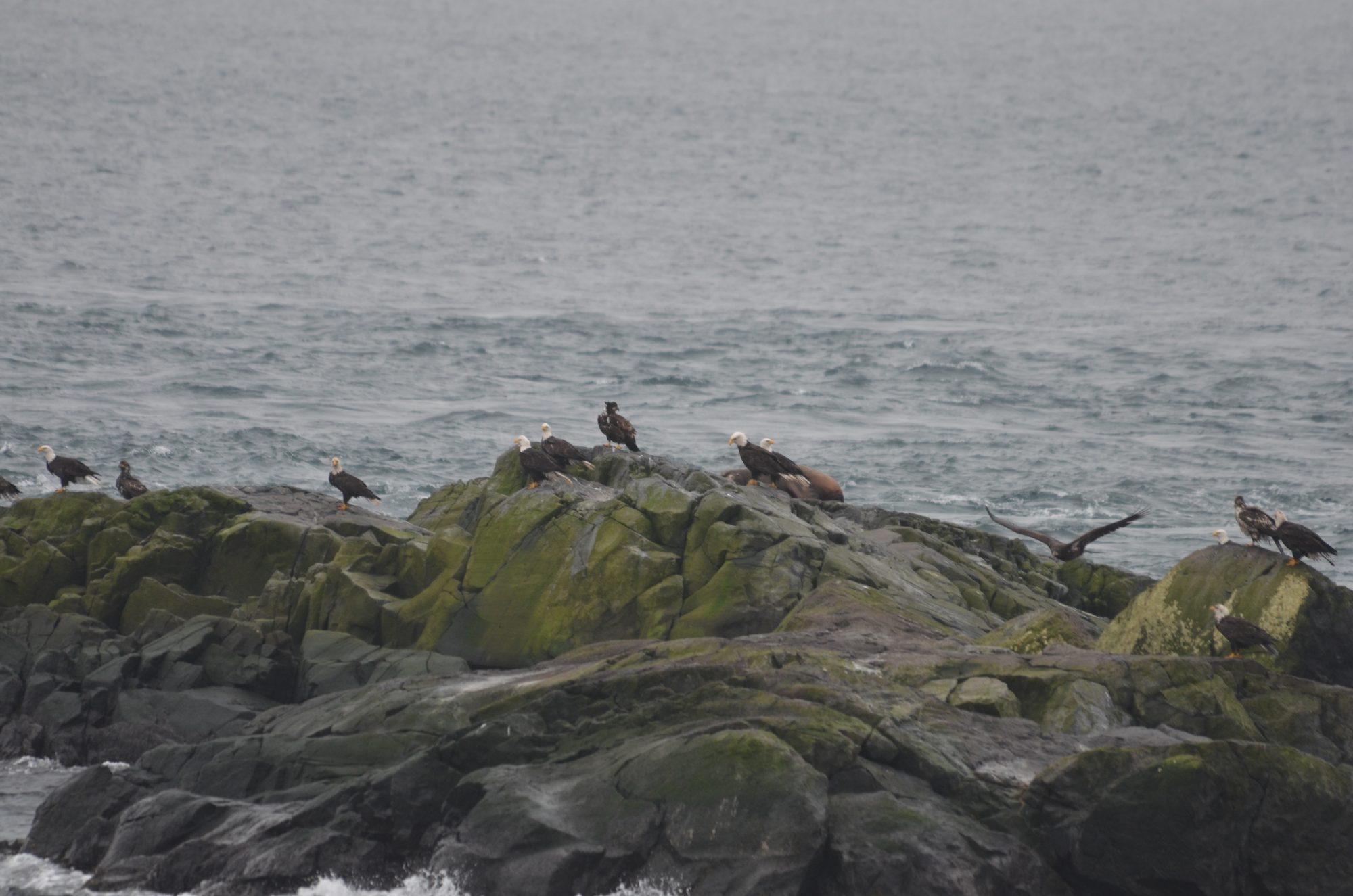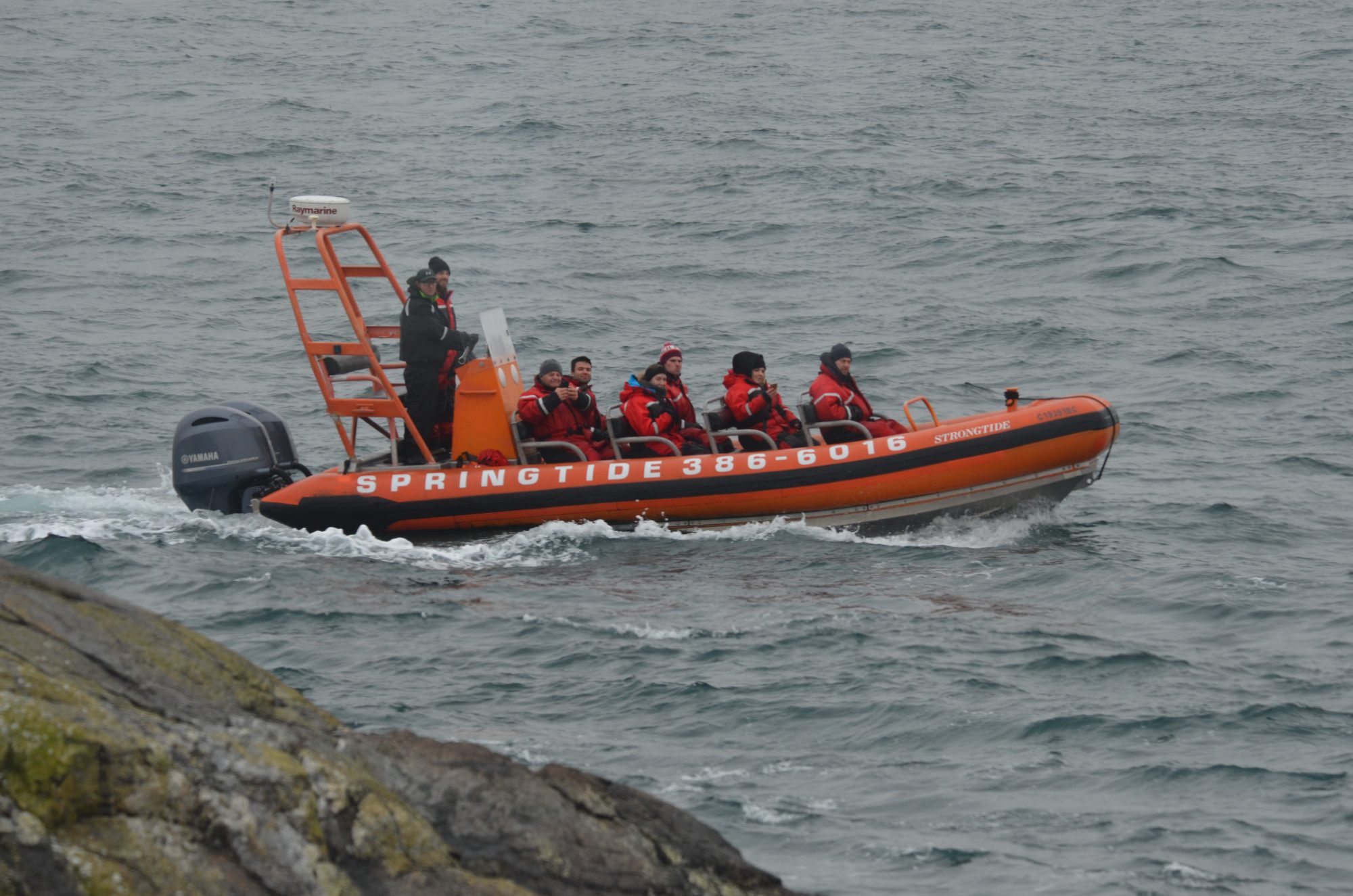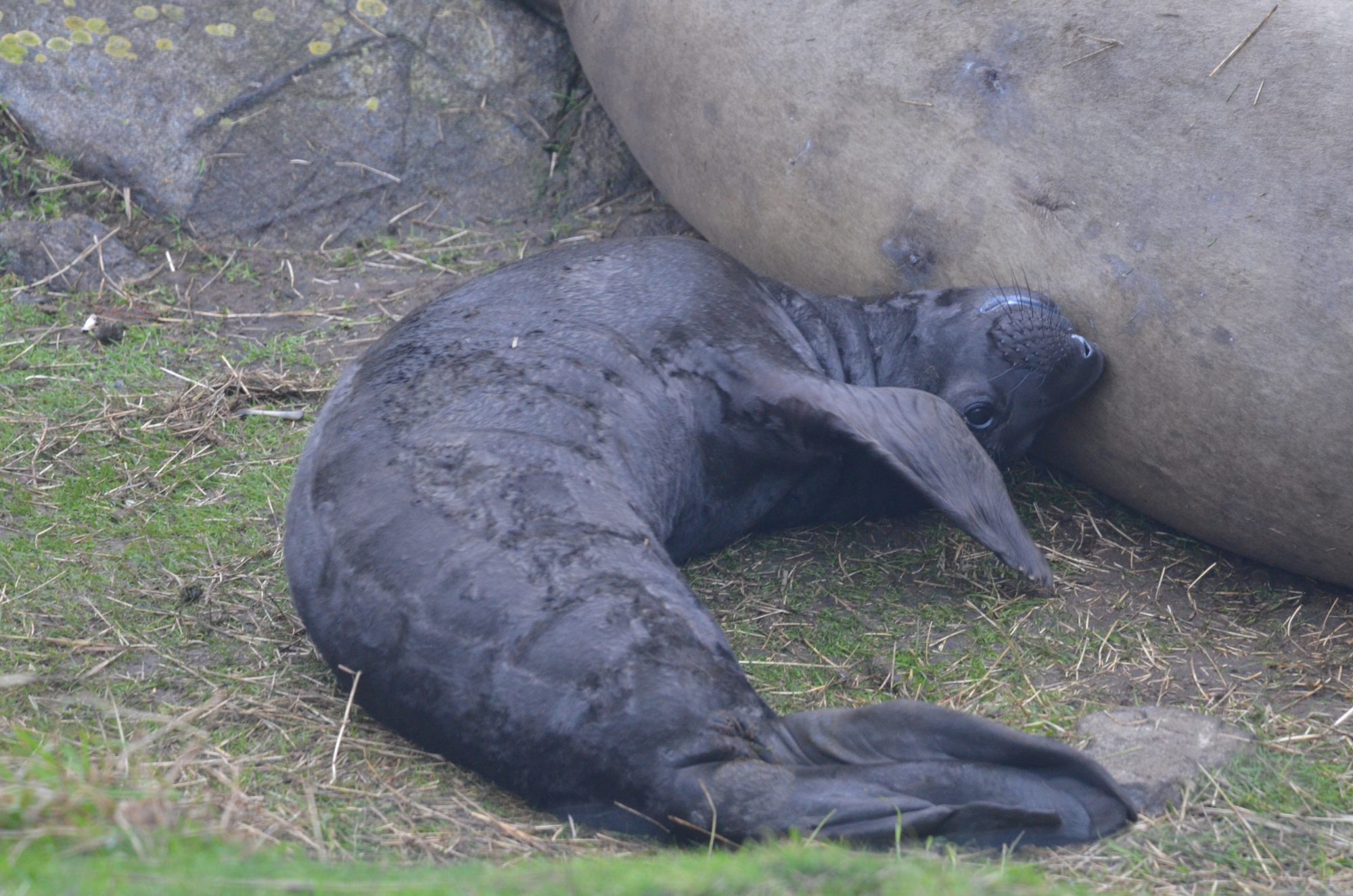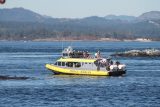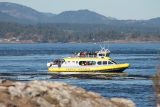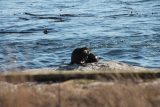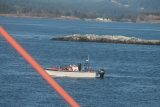This article is from the Times Colonist of September 2, 2017 by Richard Watts and Katherine Dedyna
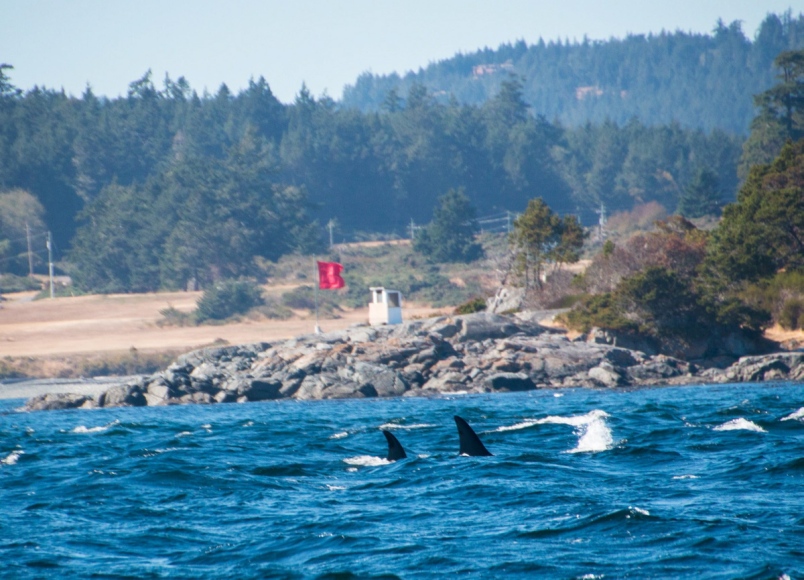
Warnings of orcas showing up near a navy dry-land blasting site on Bentinck Island came too late to stop explosions on Thursday, the navy said. Mark D Williams, SpringTide Whale Watching & Eco Tours Photograph By Mark D Williams
Relations between Victoria whale watchers and the Royal Canadian Navy appear to be frayed over the navy’s use of a blasting range near Race Rocks.
On Friday, the relationship appeared to be working. Whales showed up near a navy dry-land blasting site on Bentinck Island. Whale watchers informed the navy, and the blasting range was shut down.
On Thursday, however, two explosions were set off while killer whales were in the area. According to whale watchers, the animals fled in a panic, porpoising as they left.
Whale watchers and the navy have committed themselves for at least 15 years to a Marine Mammal Mitigation Procedure. It includes one provision under which the navy agrees not to set off explosions within 1,000 metres of a marine mammal that happens by.
Also, during explosions or live firing, the navy always has two sentry boats on the water. They sit just outside the 1,000-metre safety zone, ready to alert the range safety officer if a boat or whale appears to be getting close.
“It’s been a very smooth 15 years,” said Dan Kukat, owner of SpringTide Whale Watching and navy liaison for the Pacific Whale Watching Association. “It’s just in the last 12 months something seems to have changed.”
The navy contends it followed, as closely as possible, the Marine Mammal Mitigation Procedure. But in Thursday’s explosions, four in total, the warnings of orca proximity were received too late for two blasts.
Navy spokesman Lt. Tony Wright said the explosions are set off with a five-minute fuse.
Once they are set to fire, they can’t be stopped.
“You push a button and once you do that, you can’t turn it off,” said Wright.
He said the four explosions were part of a training exercise to practise clearing a beach of debris to make it passable for something like an amphibious landing to follow.
But whale watchers said the navy had good warnings of the approaching orcas and didn’t need to allow the explosions to occur.
Also, their complaint comes about two weeks after Kukat met at CFB Esquimalt with navy officials to streamline communications, resulting in an agreement that Kukat would alert the navy immediately when whales are spotted in blasting areas.
The meeting was in response to an incident Aug. 3 in which an Eagle Wings Tour skipper drove his boat and 50 passengers into a restricted zone to stop the firing of explosives near a pod of orcas.
Kukat said he had placed five phone calls about noon Thursday to various naval officials trying to let them know orcas were in the blasting area. He also made an additional four phone calls about 2:30 p.m.
“Our information seemed to fall on deaf ears,” Kukat said.
Also, he said he has been told at least two whale-watching boats informed the navy sailors on a sentry boat between 3 and 3:30 that there were orcas in the immediate vicinity.
But the two explosions still went off shortly after.
The whale watchers are concerned noise and vibration can damage the echo-location system that orcas use to hunt and to find their way under water.
Kukat said he is appealing to Prime Minister Justin Trudeau to step in and help out.
“I understand and respect the vital role our navy plays protecting the interests of our nation Canada,” he said.
“But the way we are living today, the marine environment is also very high on the agenda and in certain circumstances it should receive priority. Thursday, that didn’t happen.”
rwatts@timescolonist.com
kdedyna@timescolonist.com

